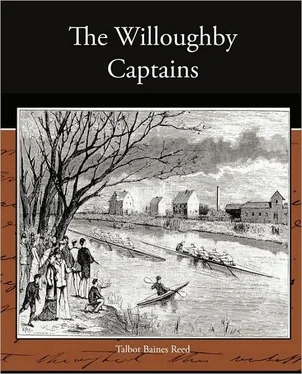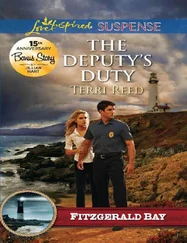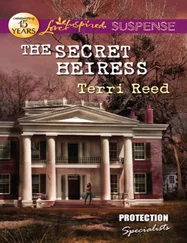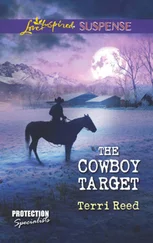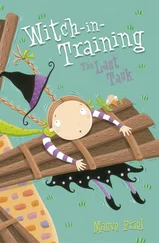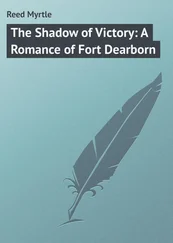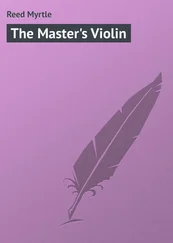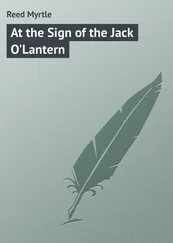Talbot Baines Reed
The Willoughby Captains
Chapter One
The last of the old Captain
Something unusual is happening at Willoughby. The Union Jack floats proudly over the old ivy-covered tower of the school, the schoolrooms are deserted, there is a band playing somewhere, a double row of carriages is drawn up round the large meadow (familiarly called “The Big”), old Mrs Gallop, the orange and sherbert woman, is almost beside herself with business flurry, and boys are going hither and thither, some of them in white ducks with favours on their sleeves, and others in their Sunday “tiles,” with sisters and cousins and aunts in tow, whose presence adds greatly to the brightness of the scene.
Among these last-named holiday-making young Willoughbites no one parades more triumphantly to-day than Master Cusack, of Welch’s House, by the side of his father, Captain Cusack, R.N. Cusack, ever since he came to Willoughby, has bored friend and foe with endless references to “the gov., captain in the R.N., you know,” and now that he really has a chance of showing off his parent in the flesh his small head is nearly turned. He puffs along like a small steam-tug with a glorious man-of-war in tow, and is too anxious to exhibit his prize in “The Big” to do even the ordinary honours of the place to his relative.
Captain Cusack, R.N., the meekest and most amiable of men, resigns himself pleasantly to the will of his dutiful conductor, only too pleased to see the boy so happy, and pardonably gratified to know that he himself is the special object of that young gentleman’s jubilation. He had come down, hoping for a quiet hour or two to see his boy and inspect Willoughby, but he finds that, instead, he is to be inspected himself, and, though he wouldn’t thwart the lad for the world, he would just as soon have dropped in at Willoughby on a rather less public occasion.
Young Cusack, as is the manner of small tugs, assumes complete control of his parent and rattles away incessantly as he conducts him through the grounds, past the school, towards the all-attracting “Big.”
“That’s Welch’s,” he says, pointing to the right wing of the long Tudor building before them—“that’s Welch’s on the right, and Parrett’s in the middle, and the schoolhouse on the left. Jolly rooks’ nests in the schoolhouse elms, only Paddy won’t let us go after them.”
“Who is Paddy?” inquires the father.
“Oh, the doctor, you know — Dr Patrick. You’ll see him down in ‘The Big,’ and his dame, and—”
“And what’s written up over the door there?” inquires Captain Cusack, pointing up to the coat-of-arms above the great doorway.
“Oh, some Latin bosh! I don’t know. I say, we’d better look sharp, father, or they’ll have started the open hurdles.”
“What are the open hurdles?” mildly inquires the somewhat perplexed captain, who has been at sea so long that he is really not up to all the modern phrases.
“Why, you know, it’s the sports, and there are two open events, the hurdles and the mile, and we’ve got Rawson, of the London Athletic, down against us in both; but I rather back Wyndham. He made stunning time in the March gallops, and he’s in prime form now.”
“Is Wyndham a Willoughby boy?”
“Rather. He’s our cock, you know, and this will be his last show-up. Hullo! you fellows,” he cries, as two other small boys approach at a trot; “what’s on? Have the hurdles started? By the way, this is my father, you know; he came down.”
The two small boys, who are arrayed in ducks and running-shoes, shake hands rather sheepishly with the imposing visitor and look shyly up and down.
“And are you running in any of the races, my men?” says Captain Cusack, kindly.
He couldn’t have hit on a happier topic. The two are at their ease at once.
“Yes, sir, the junior hundred yards. I say, Cusack, your gov — your father’s just in time for the final heat. In the first I had a dead heat with Watkins, you know,” continues he, addressing the captain. “Watkins was scratch, and I had five yards, and the ruck got ten. It was a beastly shame giving Filbert ten, though — wasn’t it, Telson? — after his running second to me in the March gallops; they ought to have stuck him where I was. But I ran him down all the same, and dead-heated it with Watkins, and Telson here was a good second in his heat.”
“I was sure of a first, but that young ass Wace fouled me,” puts in Telson.
“And now it’s dead-even which of us two wins. We both get five yards on Watkins, and he’ll be pumped with the long jump, and none of the others are hot men, so it’s pretty well between us two, isn’t it, Telson?”
“Rather, and I think I back you to do it, Parson, old man,” rejoins the generous Telson.
“Oh, I don’t know,” says Parson, dubiously; “you’re a better man on the finish, I fancy.”
“All depends on how I take off. Gully’s such a boshy starter, you know; always puts me out. Why can’t they let Parrett do it?”
And off they rattle, forgetting all about Cusack and his gallant father, and evidently convinced in their own minds that the flags and the carriages and the rosettes and all the festivities are solely in honour of the final heat of the junior hundred yards, in which they two are to take part.
Captain Cusack, with a smile on his face, watches them trot off, and asks his son, “Who are those two nice young fellows?”
“Oh, a couple of kids — not in our house,” replies Master Cusack, by no means cordially. “Jolly cheek of them talking to you like that, though!”
“Not at all,” says the captain. “I’d like to see their race, Harry.”
But Harry has no notion of throwing his father away upon the “junior hundred yards,” and as they are now in “The Big,” in the midst of the festive assembly there congregated, he is easily able to shirk the question.
An important event is evidently just over. The company has crowded into the enclosure, and boys, ladies, gentlemen, masters are all mixed up in one great throng through which it is almost impossible for even so dexterous a tug as young Cusack to pilot his worthy relative.
The band is playing in the pavilion, distant cheers are audible in the direction of the tents, a shrill uproar is going on in the corner where the junior hundred yards is about to begin, and all around them is such a buzz of talking and laughing that Captain Cusack is fairly bewildered.
He would like to be allowed to pay his respects to the Doctor and Mrs Patrick, and to his boy’s master, and would very much like to witness the exploits of those two redoubtable chums Telson and Parson; but he is not his own master, and has to do what he is told. Young Cusack is shouting every minute to acquaintances in the crowd that he has got his father here. But every one is so wedged up that the introductions chiefly consist of a friendly nodding and waving of the hand at the crowd indefinitely from the gallant father, who would not for the world be anything but gracious to his son’s friends, but who cannot for the life of him tell which of the score of youthful faces darting sidelong glances in their direction is the particular one he is meant to be saluting. At last in the press they stumble upon one boy at close quarters, whom Cusack the younger captures forthwith.
“Ah, Pil, I was looking for you. Here’s the — my father, I mean — R.N., you know.”
“How are you, captain?” says the newcomer. He had heard Captain Cusack was coming over, and had mentally rehearsed several times what it seemed to him would be the most appropriate salutation under the circumstances.
The captain says he is very well, and likes the look of Mr “Pil” (whose real name is Pilbury), and looks forward to a little pleasant chat with his son’s friend. But this hope is doomed to be a disappointment, for Pil is in a hurry.
Читать дальше
